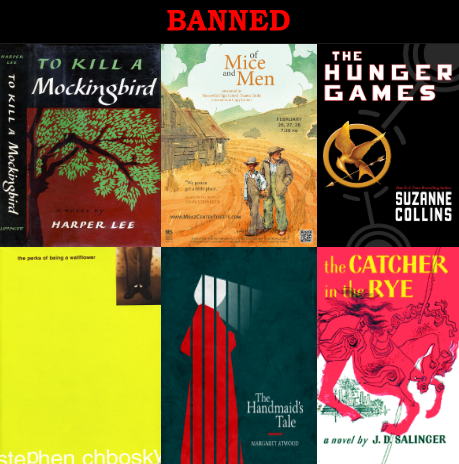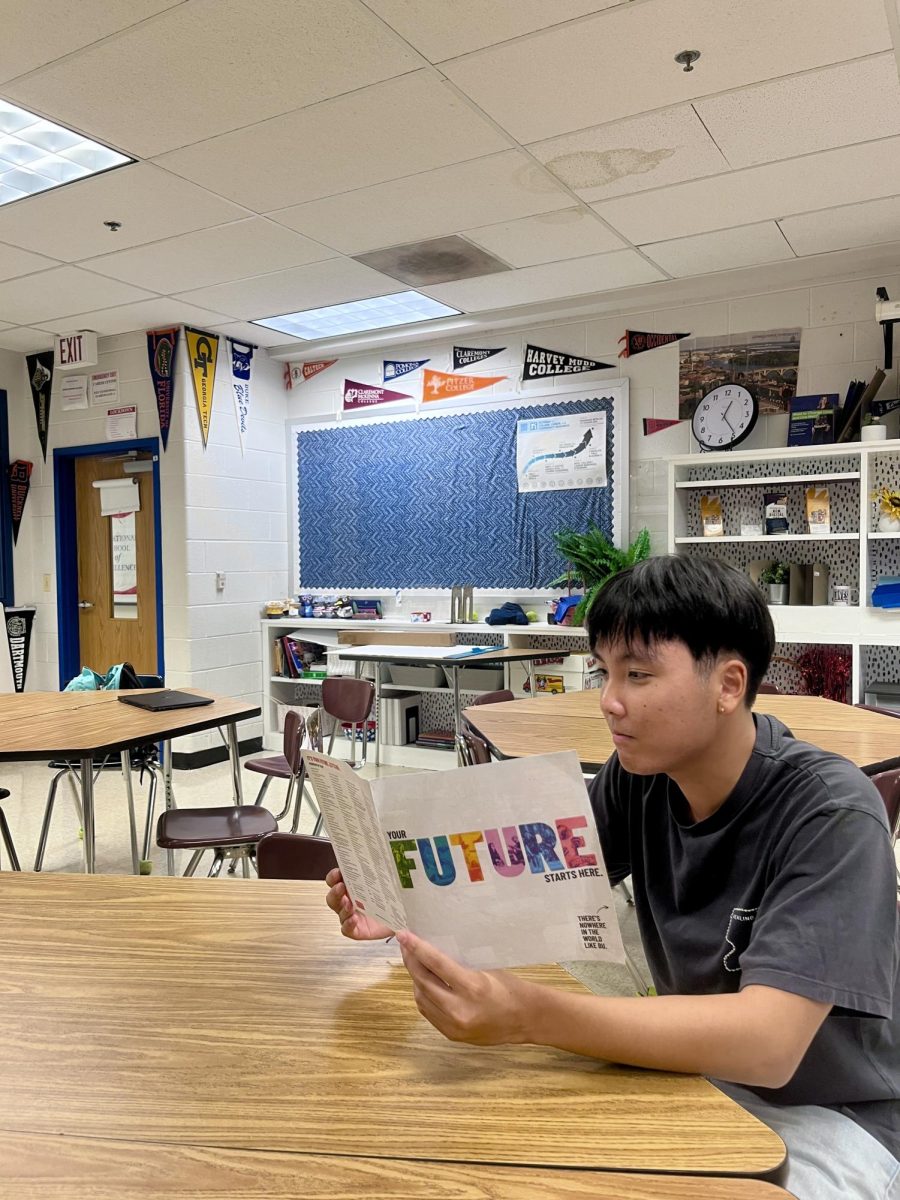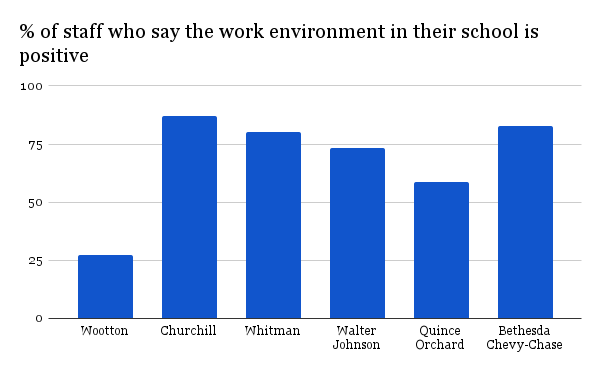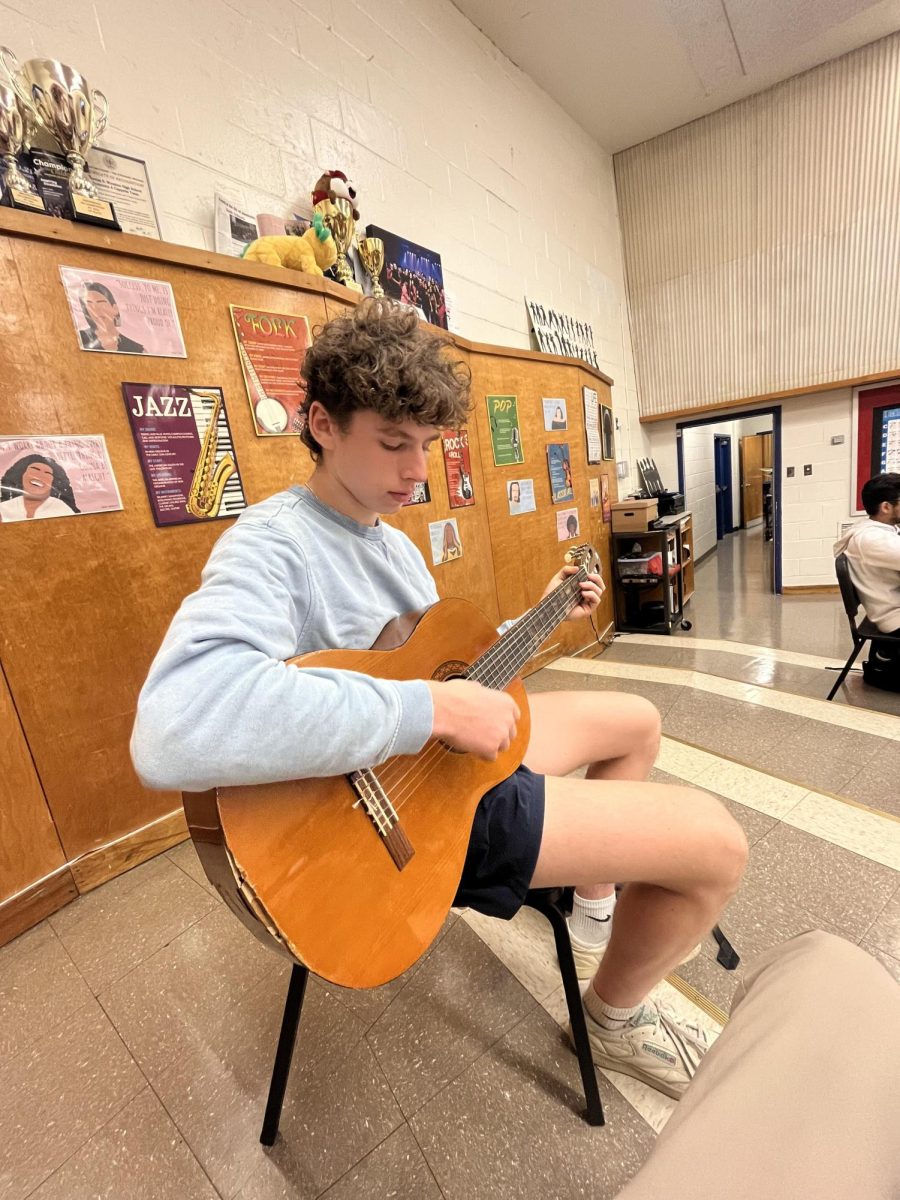The conservative Heritage Foundation has devised a set of policies known as Project 2025 that President-elect Donald Trump is expected to initiate within his first 180 days in office, according to CBS News. During this year’s election, President Joe Biden, Vice President Kamala Harris and other Democrats associated Project 2025 with Trump and his administration’s plan for his presidency. However, Trump and his campaign have worked to distance themselves from the accusation. Trump has even called some of the proposals in Project 2025 “abysmal,” according to CBS News.
To high school students and teachers, one of the most impactful policies in this plan is the proposed book ban, which would affect school libraries throughout the United States.
The Heritage Foundation has indicated they disapprove of topics that are being taught and shared with students through certain books. These topics include racism, teachings of LGBTQ+ history, sexual content and violence. As of the 2023-2024 school year, PEN America recorded 10,046 instances of book bans across 29 states and 220 public school districts. For example, Mississippi has repeatedly tried to ban To Kill a Mockingbird, by Harper Lee, due to its strong language, discussion of sexuality and rape and use of the n-word. This text is currently taught to almost all freshmen in MCPS. English teacher Chole Felterman said, “I understand that some topics may be uncomfortable for readers, but to ban a book for its content is not the answer. To have books that only represent one group does not educate everyone on the vast tapestry of differences that make us unique.”
For those in favor of a book ban, their logic behind this law is that it protects kids and teens from subjects that are too controversial or “woke.” The Heritage Foundation’s president Kevin Roberts said, “The noxious tenets of ‘critical race theory’ and ‘gender ideology’ should be excised from curricula in every public school in the country. These theories poison our children.”
Censorship of books that discuss heavier topics is not only an attack on literature but also detrimental to the development of students’ learning. Those who object to censorship ask: How will students learn about the world around them if they are unable to obtain the knowledge of it in their school? “It [banning books] is not justifiable because it’s taking away freedom of expression because it’s taking away certain ideas and views some students may have and relate to,” junior Lilly Kendall said.
Since high school is a vulnerable and confusing stage in a person’s life, the information they gather during this time is crucial for their growth. This is precisely what those in favor of a book ban want: for students to be ignorant to ideologies that differ from conservative values, thus holding the same beliefs as them as they grow up. However, just because certain books are banned in schools does not mean that students cannot find an alternative way to acquire them. “They [those in favor of a book ban] don’t want the books to be read, but what happens is the opposite, in my opinion, because now anyone who has not read it [a banned book], wants to know….what’s the big deal about that book. So, they then seek it out to read it. But anytime we are limited to access to information, there will always be a deficit in that knowledge base,” Media Specialist Tammie Burk said.
While other states in America are indeed implementing book bans in schools, Maryland is amongst the few that have not inflicted a ban on libraries that receive funding from the state, due to Governor Wes Moore’s Freedom to Read Act, passed in April of this year. This act states that material may not be excluded or removed from a school library because of the origin, background or views of the author and not for partisan, ideological or religious disapproval either, according to CBS. “In MCPS, we have an Evaluation and Selection Unit. If or when someone challenges a book in MCPS, there are protocols that must be followed and the Evaluation and Selection Unit facilitates that procedure for that challenge,” Burk said.
Government officials in Maryland disagree with the idea that books force students to believe in something or act a certain way. They believe the restriction of which books enter school libraries is a threat to literature and democracy itself. Baltimore County Public Library Chief Executive Officer Sonia Alcantara-Antoine said, “Libraries don’t tell people how to think. Instead, libraries provide access to a marketplace of ideas and information so that people can think for themselves.”
Since the Freedom to Read Act is a state policy, the 10th Amendment to the Constitution ensures that the federal government does not have the power to outlaw the policy. Therefore unless a governor in the future repeals the act, the citizens of Maryland have their freedom to read protected.





![Editors-in-Chief Ahmed Ibrahim, Helen Manolis, Cameron Cowen, Alex Grainger, Emory Scofield, Hayley Gottesman, Rebekah Buchman and Marley Hoffman create the first print magazine of the year during the October press days. “Only a quarter of the schools in MCPS have programs that are like ours, a thriving, robust program. That makes me really sad. This is not just good for [the student journalists] to be doing this, it’s good for the entire community. What [student journalists] provide to the community is a faith in journalism and that continues for their lifetimes," Starr said.](https://woottoncommonsense.com/wp-content/uploads/2025/10/wmpoFTZkCPiVA3YXA4tnGoSsZ4KmnKYBIfr18p3l-900x1200.jpg)




Arthur P LaRue • Mar 12, 2025 at 7:56 PM
An excellent piece which was shared by The Sentinel. I work on banning/Intellectual Freedom with the Maryland Library Association and this piece is, well…excellent.
thanks and I look forward to other great articles!